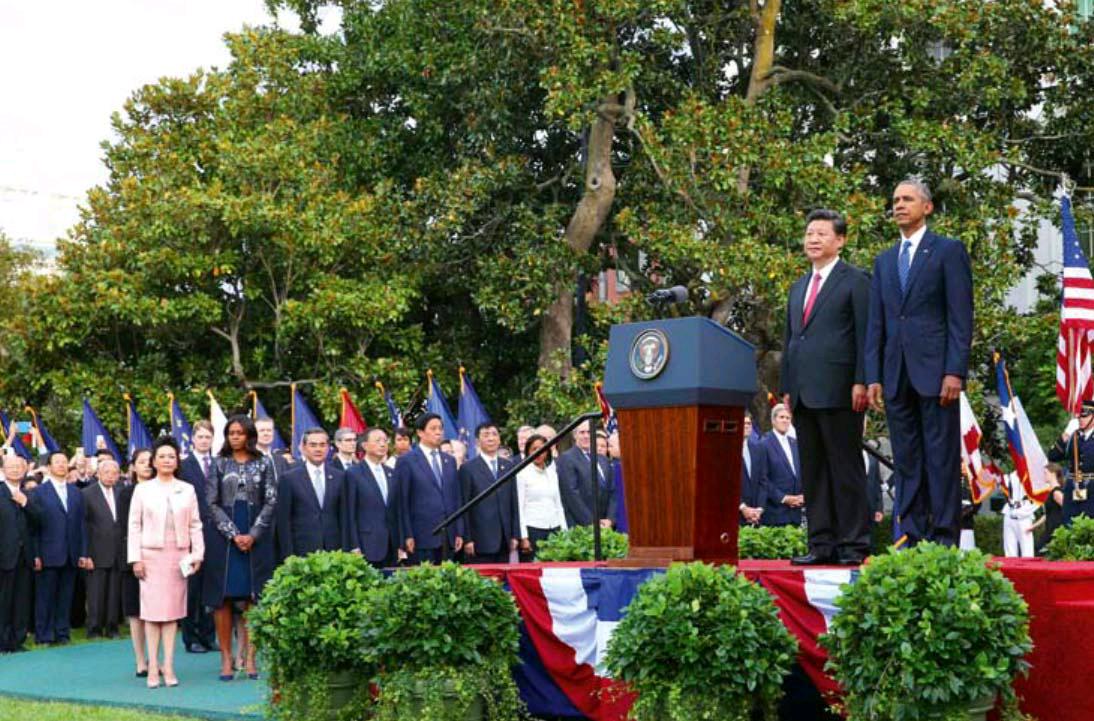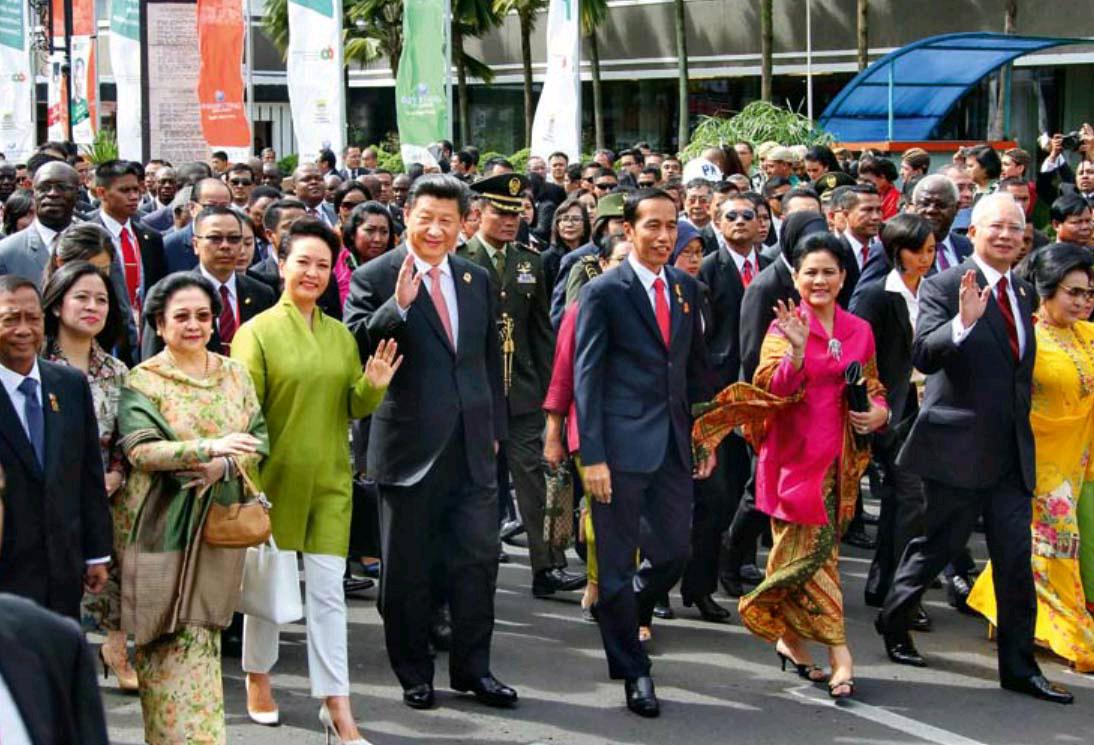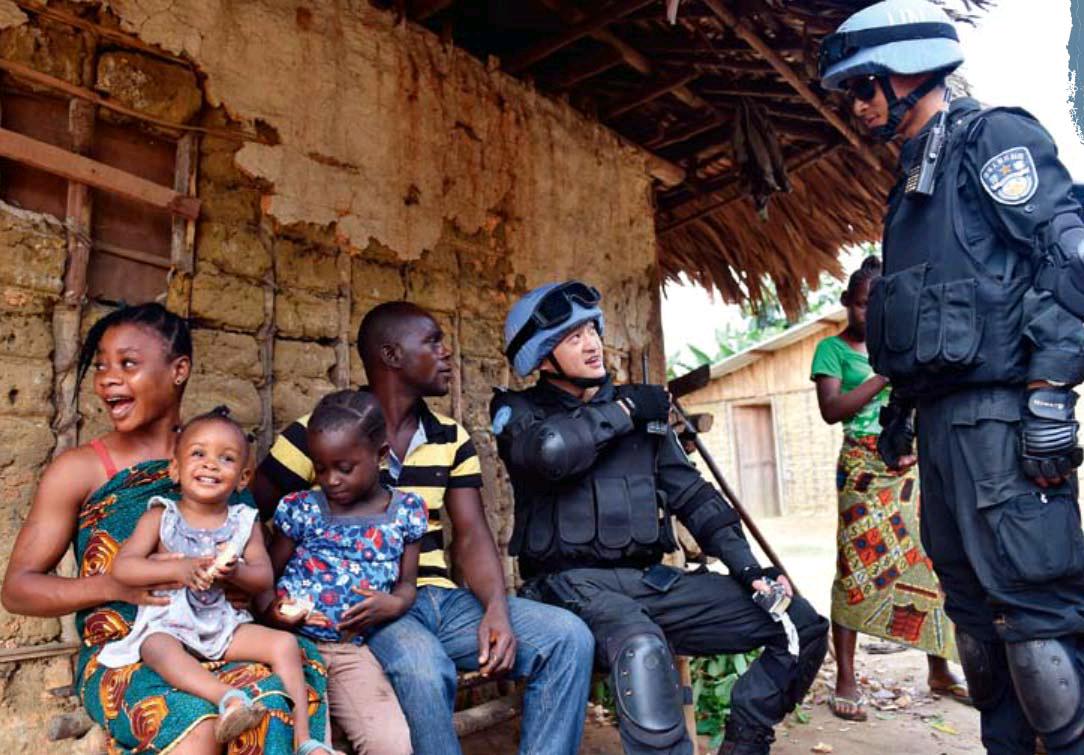A Landmark Year for Chinese Diplomacy
2016-03-16byWangYi
by+Wang+Yi
With an astute grasp of both international and domestic situations, Chinas diplomacy continued to forge ahead with a pioneering spirit, leaving a wake of major achievements and advances in many ways, over the past year.
First, Chinas international influence has been comprehensively enhanced thanks to a series of Chinese initiatives and plans facilitating extensive influence in politics, economics, security and other global realms. The country has been playing a constructive role in maintaining world peace and promoting global development.
In 2015, China successfully hosted commemorative activities marking the 70th anniversary of the victory of the Chinese Peoples War of Resistance against Japanese Aggression and the World Anti-Fascist War, underscoring the countrys resolution to safeguard international justice and conscience.
China has continued to serve as a major engine for global economic growth, and provided new drivers of world financial stability and reform. Despite downward pressure from both home and abroad, the Chinese economy still grew by about 7 percent in 2015, contributing a third of global growth. China jumpstarted the establishment of the Asian Infrastructure Investment Bank (AIIB) and the BRICS New Development Bank, the first multilateral financial institutions established by developing countries. The RMB has been included into the International Monetary Funds SDR currency basket, upgrading the international status of developing countries currencies.
China has been actively involved in pursuing major goals on the global agenda and makes important cooperative contributions. When attending summits commemorating the 70th anniversary of the United Nations (UN), Chinese President Xi Jinping elaborated on Chinas positions on major international issues and announced a number of major Chinese initiatives. These include the establishment of a China-UN peace and development fund and a fund to assist South-South cooperation. China joined the UN Peacekeeping Capability Readiness System, built a peacekeeping standby force of 8,000 people, and canceled debts owed by least developed countries.
China has acted as a responsible country and played an important role in enhancing global cooperation on climate change. In 2015, China issued joint statements on climate change successively with the EU, the United States, France, India and Brazil. The country announced the establishment of a US$3 billion South-South Climate Cooperation Fund. At the recently held Paris Conference on Climate Change, Chinese President Xi Jinping, together with participants from other countries, made important and active contributions towards the realization of a comprehensive, balanced, ambitious and binding post-2020 agreement on climate change.

At the same time, China has also been actively involved in the resolution of international and regional conflicts, playing a constructive role in maintaining world peace and security. China and other parties facilitated the comprehensive agreement on the Iranian nuclear issue, worked hard to build consensus on resuming the Six-Party Talks, and actively mediated regional conflicts in Africa as represented by the South Sudanese issue, conflicts in the Middle East as seen with the Syria issue, and conflicts in Chinas neighboring countries such as the Afghan issue. China has dispatched over 2,700 peace-keepers to many crisis areas across the world to uphold local peace and stability. China sternly condemns and opposes terrorism in all forms and supports both international and regional counter-terrorism cooperation.
Second, China has deepened its relations with many countries on major fronts.
North America: In 2015, Chinese President Xi Jinping paid a successful visit to the United States. President Xi and U.S. President Barack Obama reaffirmed important consensus on building a new model of major-country relations between the two countries. Both agreed to actively fulfill the two countriesinternational responsibilities and reached 50 important consensuses and agreements.
Eastern Europe and Central Asia: Chinese and Russian presidents attended commemorations of the victory of the Second World War held in each others country. The ChinaRussia strategic partnership of coordination has maintained a high standard of performance. Steady progress has been made in cooperation on major projects in energy, aviation and space. Chinese President Xi Jinping paid successful visits to Kazakhstan and Belarus and Chinese Premier Li Keqiang chaired the prime ministers meeting of the Shanghai Cooperation Organization. China has held top-level exchanges with almost every country in the region.
Europe: In 2015, the China-UK relationship was highlighted by commendable moments. Chinese President Xi Jinpings “super” state visit to the UK proved a great success, and China-UK relations entered a “golden age.” Premier Li Keqiang paid successful visits to France and the EU headquarters, charting new courses for Chinas cooperation with France and EU. China and Germany held their first high-level financial dialogue. The “16+1” cooperation between China and Central and Eastern European countries has registered rapid progress. An open, inclusive and win-win partnership across six major areas of cooperation has been affirmed, resulting in a new 1+6 cooperation pattern. In 2015, China held high-level exchanges with 21 European countries.

Asia Pacific: Chinese President Xi Jinping attended the Asian-African Summit and a commemoration of the 60th anniversary of the Bandung Conference. Premier Li Keqiang visited the Republic of Korea and relaunched the China-JapanROK leaders trilateral meeting which had been on hold for three years. China successfully hosted Indian Prime Minister Modis visit, provided immediate relief assistance to Nepal after it was hit by a devastating earthquake, and held the first Lancang-Mekong Cooperation Foreign Ministers Meeting. Free trade agreements with South Korea and Australia were signed, negotiations to upgrade the China-ASEAN Free Trade Agreement were completed, and preparations to upgrade the China-Singapore Free Trade Agreement increased. Major progress has been made in Regional Comprehensive Economic Partnership (RCEP) negotiations.
Africa and Latin America: For the first time, the summit of the Forum on China-Africa Cooperation was held in Africa. Chinese President Xi Jinping and leaders of 50 African countries as well as the Chair of the African Union Commission attended the summit and made a comprehensive decision to boost China-Africa cooperation in all areas. The first ministerial meeting of the Forum of China and the Community of Latin American and Caribbean States (CELAC) was held in China. Premier Li Keqiang visited four Latin American countries, where he sought cooperation in the development strategies of the two sides. In 2015, Chinas diplomacy started with the China-CELAC cooperation forum and concluded with the China-Africa cooperation forum, embodying Chinas dedication to advancing along with other developing countries through enhanced cooperation.